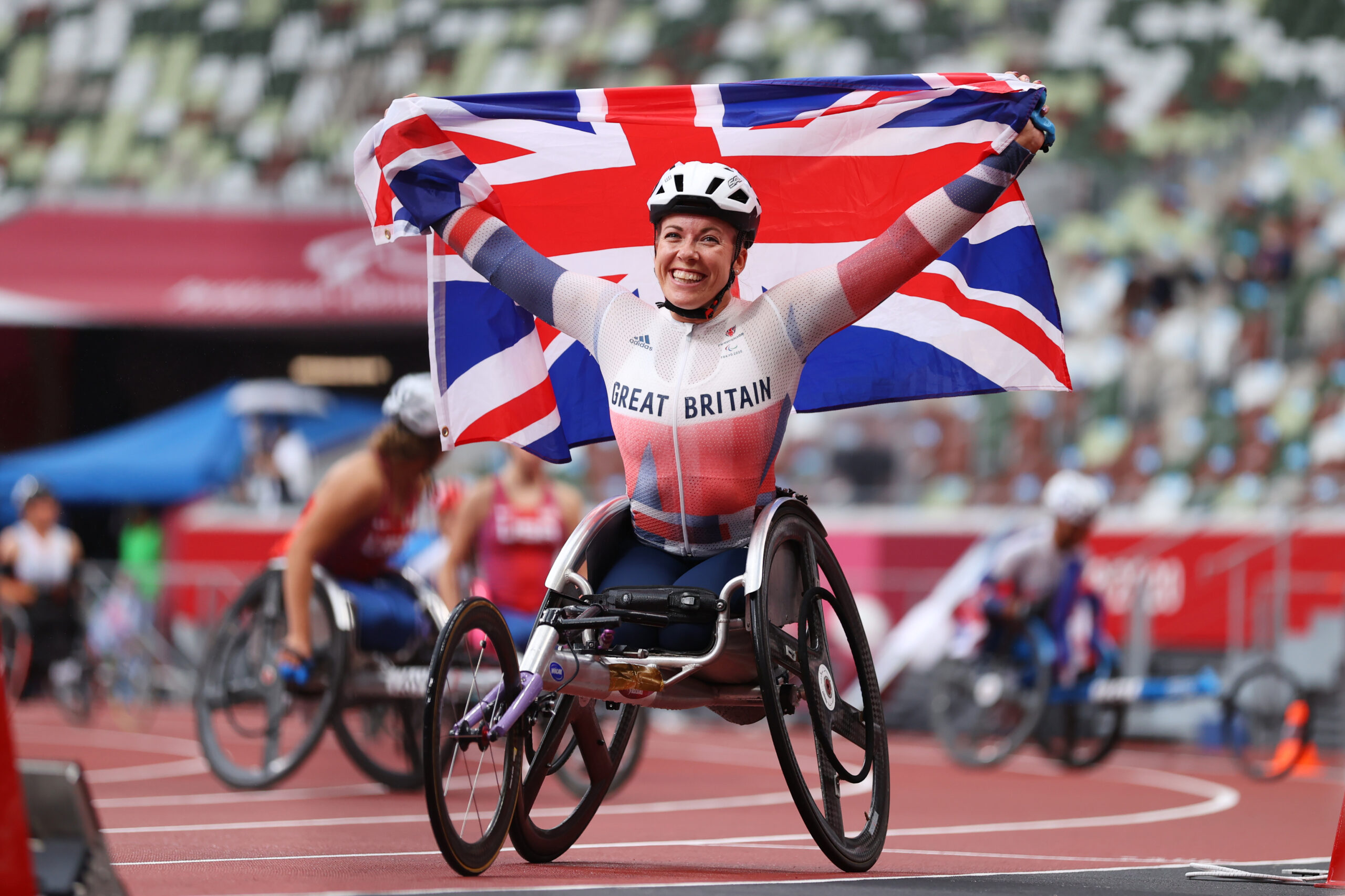This focus on overcoming barriers means the onus is taken away from those who uphold the barriers. It takes the pressure off those in power to reevaluate their practises and change to give us an equal footing in life. It also means those requesting accommodations are often seen as expecting special treatment, when in reality we just want the chance to be treated the same as everyone else.
Hannah Cockroft went on to say that the world has unrealistic expectations of Paralympians when outside the sporting arena she faces many barriers to just participating in society. “I still can’t catch a train if there is no one there with a ramp, I still can’t catch a bus with my boyfriend, I still can’t enter a shop if it has a step to it.”
Despite the government regularly bragging that Britain is apparently one of the best places for disabled people to live, our experiences say otherwise. Access is still treated like an afterthought, with removable ramps being seen as the height of accessibility. But surely having to ask for help to enter somewhere a non-disabled person wouldn’t cancels out any accessibility claims?
I don’t think it’s a coincidence that the enduring narrative is of overcoming whilst the government are trying every possible way to deny disabled people the benefits and support they need.
While the government likes to spout that too many are on unemployment-related disability benefits, they’re not doing anything to ensure companies are accessible to disabled people. They’re keen to point out how many jobs can be done from home now, but not that many home-working jobs require an education level that many disabled people don’t have and that 1 in 3 disabled people don’t have basic computer literacy.
The government attitudes and the way we’re spoken about in the media all trickle down to the way the general public thinks they can treat us. From jokingly being asked if we’re just using canes to jump queues to being shouted at in the street for blocking the way. Disabled people are afraid of not appearing disabled enough in public that they’ll be reported to the DWP whilst simultaneously too disabled to employ or take seriously.
In 2022 Leonard Cheshire found that disability hate crime had risen by 25 per cent and that violent disability hate crimes had gone up by 27 per cent from the year before. Repeat disability hate crime offenders were up by 31 per cent and online disability hate crime rose by 20.4 per cent. Just 1 per cent of these however, were referred to the CPS or resulted in charges.
And all of this is why it’s so important that we have some semblance of representation in government, no matter how futile that is with the Tories in power. Yet Sunak thought it was perfectly fine to downgrade the minister for disabled people role to junior minister.
If the government is going to keep parroting that they care about helping disabled people thrive they need to actually prove it. It’s all well and good saying they want us to succeed – I want a million quid and a cottage by the sea but wanting isn’t enough. Creating a system that allows us to gain support if we need it whilst dismantling the things that hold us back means having to genuinely care about disabled people.
I agree with Hannah Cockroft, Britain is a scary place for disabled people – and the Tories aren’t doing anything to change that.
Do you have a story to tell or opinions to share about this? We want to hear from you. Get in touch and tell us more.









